Okay, I've been dealing with this for two days now, and I can't find a solution.
Problem: I'm trying to set a filter to a File Selection Dialog using Winapi. I'm using GetOpenFileName function to do this. This function uses a structure to set options such as file extension filters. This structure's member called lpstrFilter needs a certain string format. I'm setting that string exactly as Winapi indicates, but for some reason, this string's value changes.
I've got this static const char *:
//This contains string "JPG"
static const char * extensionFilter = v->trabajo10.C_JMV_SelectFile_FileExtension7.GetString();
//This forms a filter string which applies to OPENFILENAME structure.
string sFilter;
sFilter.append("Format: ");
sFilter.append(extensionFilter);
sFilter.push_back('\0');
sFilter.append("*.");
sFilter.append(extensionFilter);
sFilter.push_back('\0');
const char * filter = sFilter.c_str();
ofn.lpstrFilter = filter; //This sets: --> Format: JPG\0*.JPG\0
//This opens the file selection dialog
if (GetOpenFileName(&ofn)==TRUE){
...
The File Selection Dialog looks CORRECTLY, like this:
The joke comes now, I modify the code like this:
//This contains string "JPG"
static const char * extensionFilter = v->trabajo10.C_JMV_SelectFile_FileExtension7.GetString();
if(1){
//This forms a filter string which applies to OPENFILENAME structure.
string sFilter;
sFilter.append("Format: ");
sFilter.append(extensionFilter);
sFilter.push_back('\0');
sFilter.append("*.");
sFilter.append(extensionFilter);
sFilter.push_back('\0');
const char * filter = sFilter.c_str();
ofn.lpstrFilter = filter; //This sets: --> Format: JPG\0*.JPG\0
}
//This opens the file selection dialog
if (GetOpenFileName(&ofn)==TRUE){
...
And this is the result, THE PROBLEM:
Filter string was modified???

